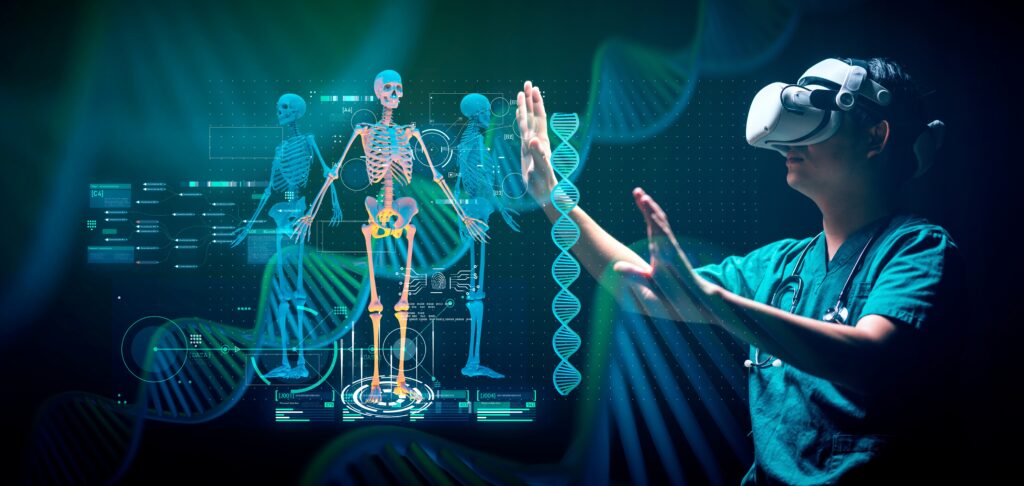
AI in Healthcare: Revolutionizing Diagnosis and TreatmentAI in Healthcare: Revolutionizing Diagnosis and Treatment Artificial Intelligence (AI) has emerged as a transformative force in the healthcare industry, revolutionizing the way medical professionals diagnose and treat patients. By leveraging sophisticated algorithms and vast datasets, AI is unlocking new possibilities in healthcare, enhancing accuracy, efficiency, and personalization. Enhanced Diagnostic Accuracy AI algorithms can analyze vast amounts of medical data, including patient history, lab results, and imaging scans, to identify patterns and anomalies that may be missed by the human eye. This enhanced diagnostic accuracy empowers physicians to detect diseases earlier, leading to prompt intervention and improved patient outcomes. For example, AI-powered systems can assist in diagnosing cancer, cardiovascular diseases, and neurological disorders with increased precision. Personalized Treatment Plans AI algorithms can also process genetic data and patient lifestyle information to create personalized treatment plans tailored to each individual’s unique needs. By analyzing a patient’s genome, AI can identify mutations or genetic predispositions that may influence the effectiveness of certain medications or therapies. This personalized approach ensures that patients receive the most appropriate treatment for their condition, maximizing efficacy and minimizing side effects. Streamlined Workflow and Efficiency AI-powered tools can automate many routine tasks in healthcare, such as data entry, appointment scheduling, and image analysis. This streamlines workflows, freeing up healthcare professionals to focus on providing more personalized and patient-centered care. AI can also assist in screening for high-risk patients, prioritizing cases, and identifying potential complications, enabling timely interventions and reducing hospital readmissions. Remote Patient Monitoring and Management AI-enabled devices and sensors allow patients to monitor their health remotely, providing real-time data to healthcare professionals. This remote monitoring enables early detection of health issues, prompt intervention, and continuous support from afar. AI algorithms can analyze data from blood glucose monitors, fitness trackers, and sleep sensors to identify trends, predict health risks, and adjust treatment plans as needed. Challenges and Ethical Considerations While AI holds immense promise for healthcare, it also poses certain challenges and ethical considerations. Ensuring data privacy and security is paramount, as AI algorithms rely on vast amounts of patient data. Additionally, it is crucial to address biases that may exist in AI systems and ensure equitable access to AI-powered healthcare services. Ethical guidelines must be established to ensure that AI is used responsibly and in the best interests of patients. Conclusion AI is revolutionizing diagnosis and treatment in healthcare, enhancing accuracy, efficiency, and personalization. By leveraging sophisticated algorithms and vast datasets, AI is empowering healthcare professionals to make more informed decisions, provide tailored care, and improve patient outcomes. However, it is critical to address the challenges and ethical considerations associated with AI in healthcare to ensure its responsible and equitable use. As AI continues to evolve, it holds immense potential to transform healthcare and create a healthier future for all.
Posted inNews